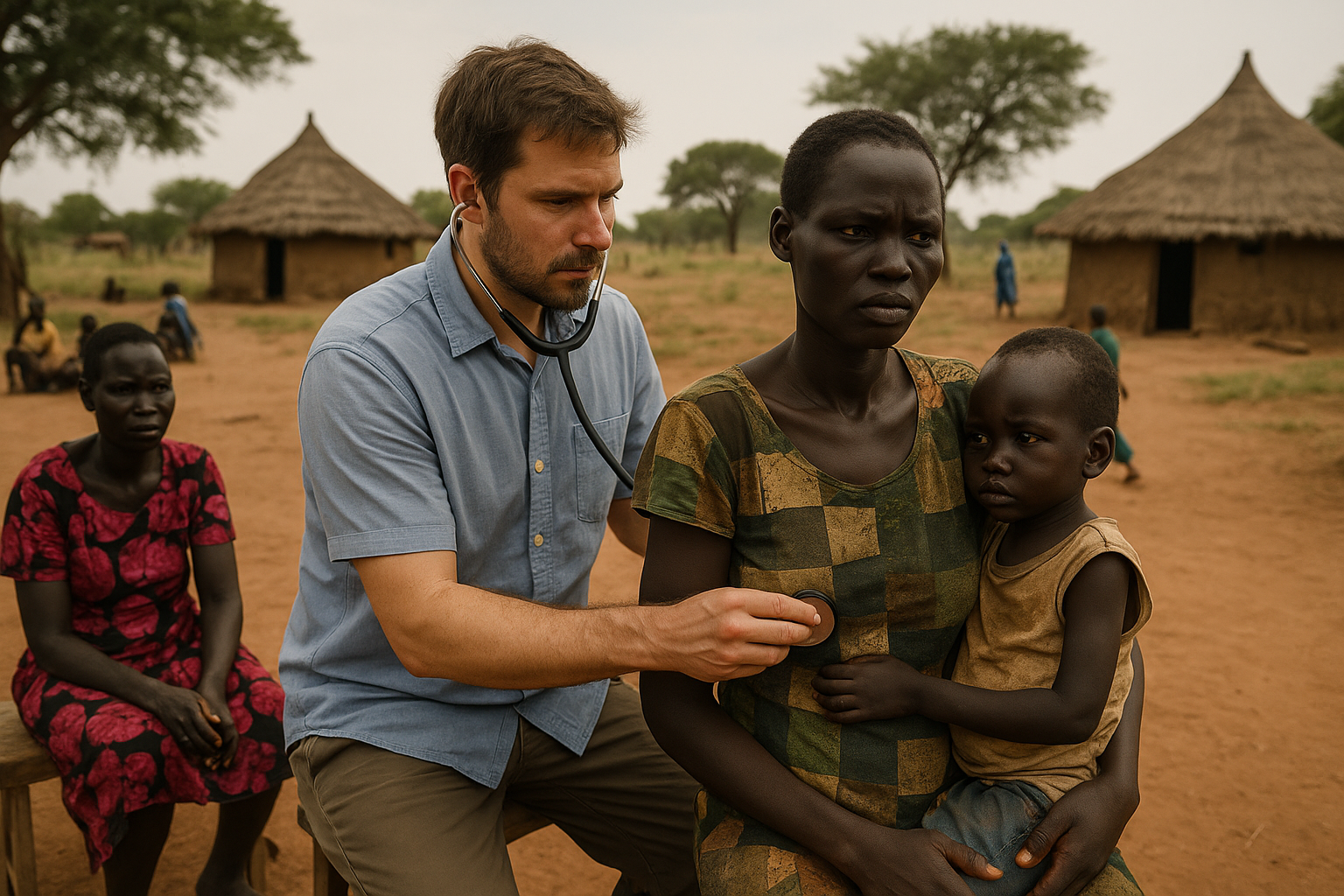Reviving Rural Healthcare: Challenges and Reforms for South Sudan’s Health Workforce
A World Bank report highlights the severe challenges faced by rural health workers in South Sudan, including poor infrastructure, irregular pay, and lack of training. It calls for targeted reforms in recruitment, incentives, and facility upgrades to stabilize and strengthen the health workforce.

A new report by the World Bank, prepared in collaboration with the Government of Japan and supported by the Japan Policy and Human Resources Development (PHRD) Fund, sheds light on the enormous challenges facing South Sudan’s rural health workers. Drawing on contributions from institutions including the KIT Royal Tropical Institute and the EQUAL Research Consortium, the report combines literature reviews and direct interviews with rural health professionals to present a detailed and poignant analysis. Despite working under extremely challenging conditions, many of these workers remain committed to their communities, driven by a strong sense of social responsibility and personal dedication to the underserved.
A Deep Commitment Battling Harsh Realities
What emerges strikingly from the report is that most rural health workers are not in their roles for financial gain, but out of a sense of moral duty. Many feel personally obligated to serve remote communities that would otherwise be completely isolated from healthcare services. However, the day-to-day realities of their work are deeply discouraging. Basic infrastructure is missing or insufficient; clinics lack space, electricity, clean water, and sanitation. The shortage of emergency transport, such as ambulances, often hindered by broken-down vehicles or fuel shortages, can be fatal. Medical supplies are restocked every three to four months, but high demand, especially due to conflict-driven population displacement, leads to stockouts long before the next consignment arrives. This sometimes results in community mistrust, with health workers wrongly blamed for hoarding or mismanaging resources. As one health worker quoted in the study said, “Inadequate supplies cause the community members to think health workers are not doing their jobs properly.”
Accountability Exists, But Barely Functions
The report outlines a layered but fragile system of accountability, relying on both government and community oversight. National and county-level health officials conduct periodic visits to rural facilities, but these are irregular and often limited to administrative box-ticking due to poor funding and lack of transportation. Local Boma Health Committees, composed largely of traditional leaders, help track deliveries and identify problems, yet they sometimes breed conflict when they accuse health workers of malfeasance without solid evidence. Formal complaint mechanisms are in place, such as suggestion boxes and feedback desks, but their impact is limited. Health workers are often left unsupported, their feedback ignored, and their recommendations unimplemented due to donor constraints or bureaucratic inertia. Moreover, logistical challenges like poor roads, security issues, and the absence of digital tools such as Open Data Kit systems further weaken the feedback loop.
Systemic Workforce Shortages and Education Gaps
The most alarming statistic in the report is that South Sudan has just 8,700 health workers deployed, less than a third of the 26,000 needed to meet basic health standards. This gap is not just numerical; it stems from deep-rooted systemic problems. Tertiary education access is nearly nonexistent, and secondary school completion is only 17 percent, with even lower rates for girls. Most training institutions are clustered in cities, placing rural and female candidates at a disadvantage. Financial barriers, cultural norms, and long travel distances keep many willing individuals from joining the workforce. Informal recruitment practices, especially in rural areas, often result in underqualified staff being placed in critical roles. Tribal affiliations sometimes influence hiring, and private training institutions, largely unregulated, add another layer of concern regarding quality.
Reforming Recruitment, Training, and Working Conditions
To address these interwoven challenges, the report offers a suite of practical recommendations. Chief among them is the creation of a Rural Health Workforce Pathway, an initiative aimed at decentralizing health worker training, targeting rural youth and women through scholarships, and establishing local training hubs. The program would also integrate mentorship, hands-on practicums, and phased certification to build a more capable and community-rooted workforce. A second proposal suggests bridging the gap for low-literacy candidates by adapting training models to include oral and visual methods, as successfully implemented in Ethiopia’s Health Extension Program.
On the retention side, the report advocates for more predictable and transparent salary disbursements. Most rural health workers are not salaried by the government but depend on donor-funded cash incentives, which are frequently delayed, sometimes by more than a year. The report recommends introducing mobile payment platforms like m-Gurush or Nilepay to expedite and track payments. Furthermore, it calls for stakeholder consultations to design a sustainable incentives package that includes both financial and non-financial benefits such as accommodation, transport stipends, and telecommunication access. Lastly, the report urges the Ministry of Health and partners to invest in infrastructure improvements, everything from solar electrification and security fencing to ambulance provision and clinic expansion.
- FIRST PUBLISHED IN:
- Devdiscourse










